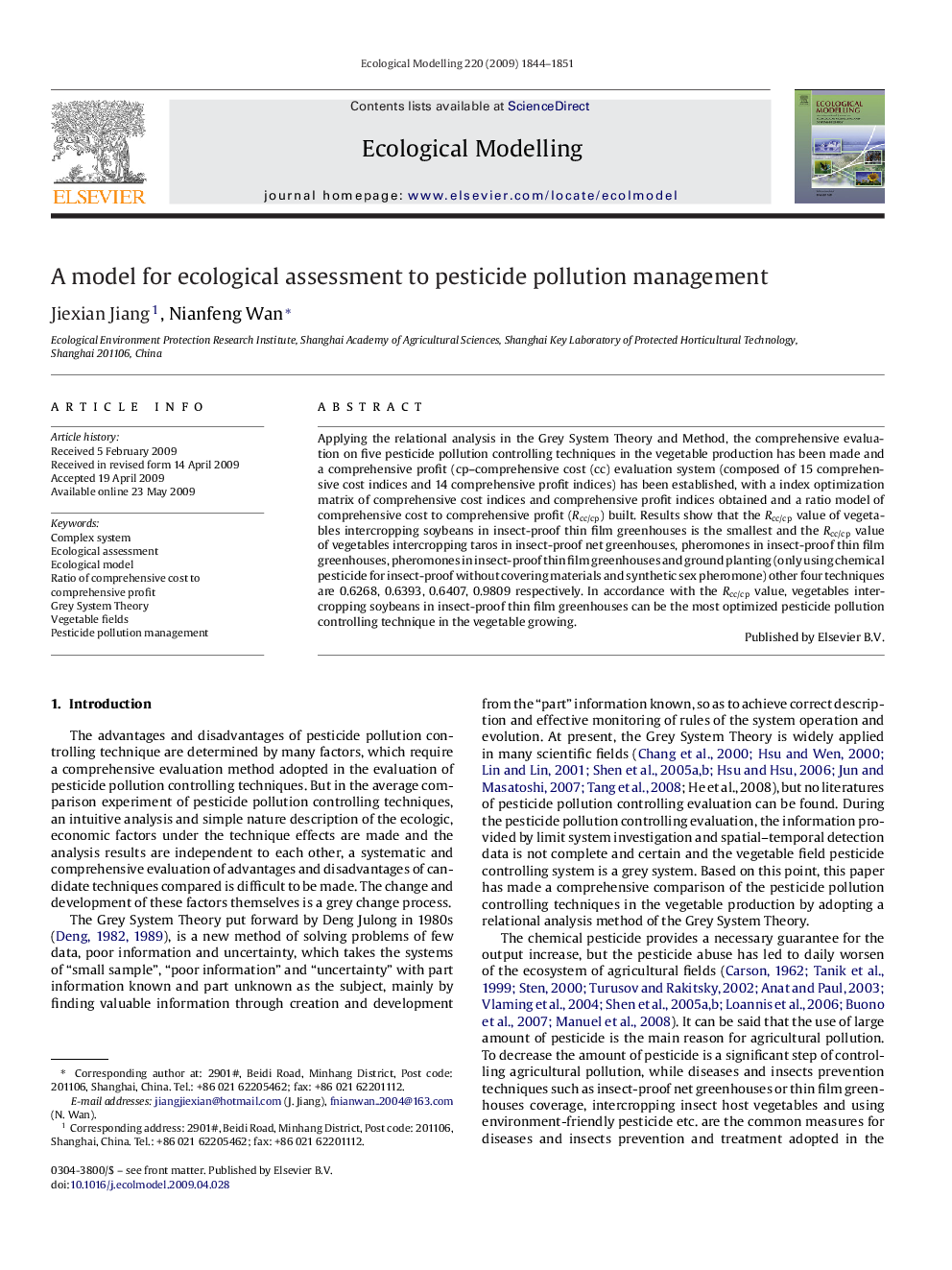| Article ID | Journal | Published Year | Pages | File Type |
|---|---|---|---|---|
| 4377960 | Ecological Modelling | 2009 | 8 Pages |
Applying the relational analysis in the Grey System Theory and Method, the comprehensive evaluation on five pesticide pollution controlling techniques in the vegetable production has been made and a comprehensive profit (cp–comprehensive cost (cc) evaluation system (composed of 15 comprehensive cost indices and 14 comprehensive profit indices) has been established, with a index optimization matrix of comprehensive cost indices and comprehensive profit indices obtained and a ratio model of comprehensive cost to comprehensive profit (Rcc/cp) built. Results show that the Rcc/cp value of vegetables intercropping soybeans in insect-proof thin film greenhouses is the smallest and the Rcc/cp value of vegetables intercropping taros in insect-proof net greenhouses, pheromones in insect-proof thin film greenhouses, pheromones in insect-proof thin film greenhouses and ground planting (only using chemical pesticide for insect-proof without covering materials and synthetic sex pheromone) other four techniques are 0.6268, 0.6393, 0.6407, 0.9809 respectively. In accordance with the Rcc/cp value, vegetables intercropping soybeans in insect-proof thin film greenhouses can be the most optimized pesticide pollution controlling technique in the vegetable growing.
